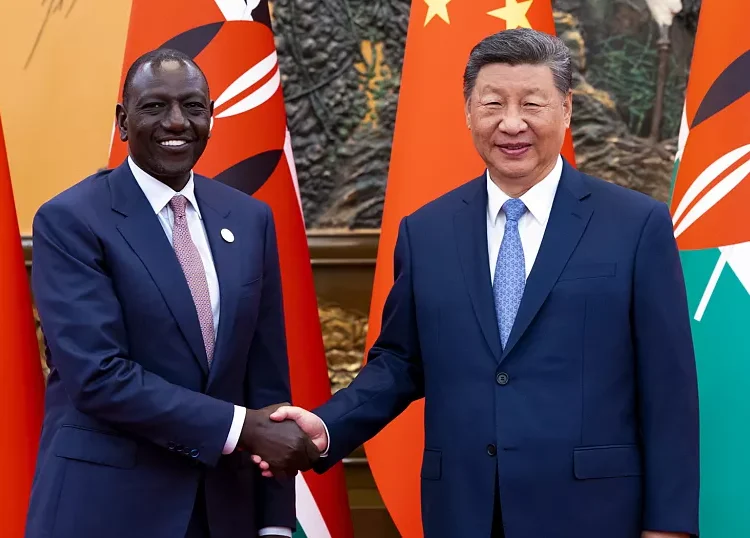Once it comes into force, the economic agreement will give Nairobi tariff-free access to the EU market. For its part, the country will gradually open its market.
The European Union and Kenya will announce a trade deal on Monday, June 19, according to European officials, as Brussels seeks to establish closer economic ties with Africa. The agreement negotiations will be officially concluded during a ceremony in Nairobi, in the presence of Kenyan President William Ruto, his Trade Minister Moses Koria and European Trade Commissioner Valdis Dombrovskis.
Once it comes into force, the Economic Partnership Agreement (EPA) will give Kenya tariff-free access to the EU, its largest market to which it sends about a fifth of its exports. This mainly refers to agricultural products such as tea, coffee and the 70% of their flowers. A "historic day"
For its part, Kenya will gradually open its market, with the exception of a number of sensitive products, Mr Dombrovskis said, describing it as a "historic day" for both sides. "This puts us firmly on the path of a privileged relationship based on trust, rules and mutual opportunities," he told reporters on Sunday before the official announcement. According to him, European companies have invested €1 billion in Kenya in the last decade, but there is a "huge appetite" to do even more business there. "With this economic partnership agreement in place, we also have the right platform to do so," said the European commissioner. This is the first major trade deal between the EU and an African country since 2016. It comes after a spending spree by China on major infrastructure projects across the continent.
The European Union has implemented measures to counter the Chinese initiative known as "the New Silk Roads" or "The Belt and Road", announcing in February that it would increase investments in Kenya by hundreds of millions of dollars through its own strategy called “Global Gateway”. In the midst of an unstable region, Kenya is considered a reliable and stable democracy by the international community.
Furthermore, the EU considers Africa a "priority region" and the agreement with Kenya is expected to have repercussions on other countries on the continent. The agreement is also open for accession by other member countries of the East African Community (EAC). In addition to Kenya, the EAC includes six member countries (Burundi, Democratic Republic of the Congo, Rwanda, South Sudan, Tanzania and Uganda).
Source: Le Monde.






